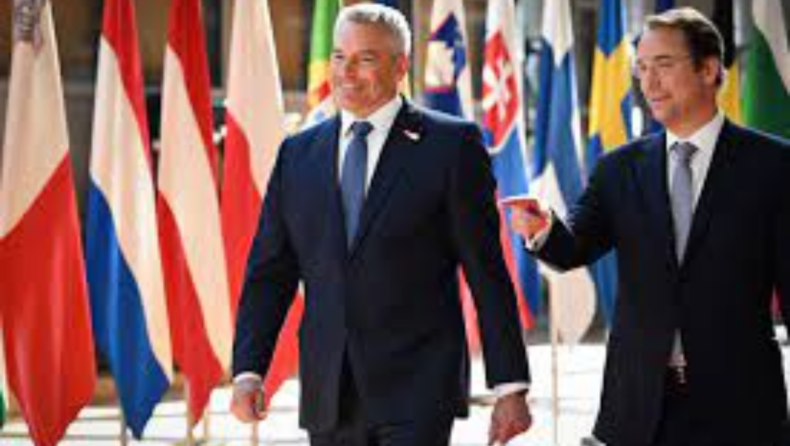
Austria continues to stand neutral though Russia razes Ukraine and rapid changes in geopolitics
As Sweden and Finland move closer to NATO membership, eyes are now fixed on the moves of Austria, as its neutrality is under the microscope.
There is no clear picture of whether Austria, a European Union (EU) member is willing to be a part of NATO, partners in various capacities, and hence labeled by analysts as a free rider simply surviving on luck.
Domestically there has been no serious debate in Austria about joining NATO, while the spirit of popularity remains dominant among Austrian politicians. After two world wars and a bloody civil war in the 1930s, Austrians still instinctively avoid the ruckus.
Is there a history behind Austrian “permanent neutrality”?
After 1945, the allies administered the country, and many Austrians remain anti-American to this day, on the basis that the country during that period was occupied by both the Soviet Union and the United States.
With the soviet red army on the soil of Austria until 1955. Later, regained independence, but on one condition, imposed by the kremlin: that the country remains “strictly neutral”.
Hence, to date, this past dominates Austria’s foreign policy. Austria’s ties have been cultivated with Russia over time with trading and cultural ties.
What do the relations between Austria and Russia look like?
Neutrality has also enabled Austria to integrate into the West’s economic architecture while also reaping the benefits of trade with the Soviet Union and later Russia.
Austria was the first country to sign a natural gas agreement with the USSR in 1968 and thus, remains dependent on Russian hydrocarbons. Gas heavily factors in its interest in avoiding actions that could excessively antagonize President Vladimir Putin’s government in Moscow.
Another card was turned when Austria voted in favor of the general assembly resolution on march 2 which condemned Russia’s invasion. Furthermore, Austria supported Ukraine by providing it with neo-lethal weapons and donating humanitarian assistance.
As a result, the relations between Moscow and Vienna have been restrained since February 24.
“Ties with Russia are reduced to the bare minimum,” said Pusztai.
Austria has also reduced its gas imports from Russia from 80 to 50 percent since the war began.
Diplomatic bridge
“Austria’s self-defined geopolitical position as a so-called ‘bridge’ between Russia and the West has been thrown into significant doubt since the onset of Russia’s large-scale invasion of Ukraine in February.” Benjamin l Schmitt, a research associate at Harvard University told AL Jazeera.
He further added that this ambiguous nature of Vienna’s geopolitical stand as a bridge between east and west could mitigate the ongoing conflict.













